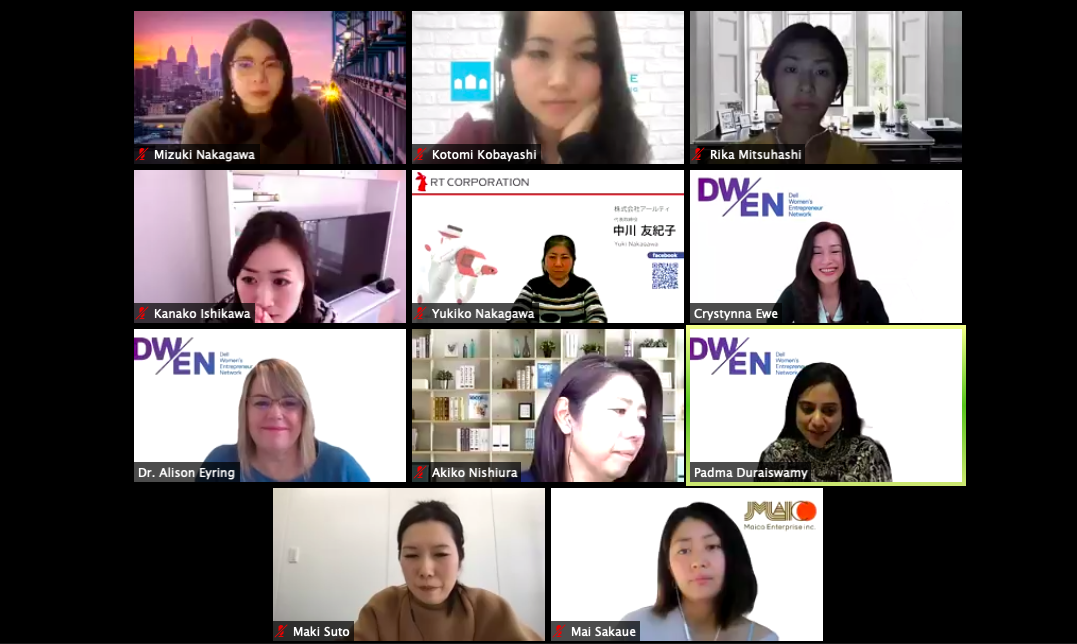Although there’s been much progress towards gender equality in business, being a female entrepreneur still has its challenges, especially in Japan. In spite of its advanced economy, the country ranks 121st out of 153 in terms of gender parity, according to the World Economic Forum’s Global Gender Gap Report 2020. That’s far behind emerging markets such as the Philippines, Laos, and Thailand, which came in 16th, 43rd, and 75th, respectively.
The situation has led various organizations to step up and offer a helping hand for aspiring entrepreneurs trying to leave their marks on the business world, one of which is Acceleration Program in Tokyo for Women (APT Women).
Initiated by the Tokyo Metropolitan Government, APT Women supports females who aim to start a business, improve their managing skills by providing training, or assist with the scaling of their businesses, aside from offering various opportunities to meet and collaborate with peers that share the same spirit.
On Friday, APT Women and the Dell Women Entrepreneurship Network (DWEN) held a webinar with female entrepreneurs and thought leaders, including Alison Eyring, founder of the Singapore-based consultancy Organisation Solutions, and Padma Duraiswamy of Chimera Technologies, a software firm headquartered in Bangalore.
“At the moment, Japan is unfortunately far behind from the ideal environment that we are trying to achieve,” said APT Women’s Mizuki Nakagawa. “However, we are gradually getting better,” she added, pointing out that Tokyo is climbing the ranks in the list of the world’s best cities for women entrepreneurs.
During the webinar, Tokyo-based female entrepreneurs from nine startups shared their stories and talked about their plans to enter the Singapore market. The event aimed to connect the founders with potential business partners in the city-state, as a part of APT Women’s overseas dispatch program.
Destination Singapore
As Southeast Asia’s tech hub and with a rich diversity, Singapore is considered an ideal place to expand a business, especially for women founders. “If you have aspirations to go regional or global, Singapore is certainly a great place, you can connect to both China and the US, which are the key markets for many businesses,” said Eyrin.
“We’ve started companies in a number of different countries and Singapore has really been the easiest with an honest government that is progressive and taxes are favorable. Moreover, Singapore is very diverse and has a good legal framework, so it just makes sense to start from here,” she added.
The following startups participated in the event:
Grigry, develops a portable self-defense pet robot called ‘cocoron,’ that can help owners to contact police when they’re in danger while helping to relieve stress with its aromatic scent.
Seam,is direct-to-consumer (D2C) brand of Japanese pickled vegetables called “wa-mon”
Seedhouse, is an edtech platform that offers a hybrid learning method, allowing students to take online classes at its tutoring schools and provides free rental of digital devices such as computers or tablets for students at home.
Shanri, is a startup that’s developing a platform called Medical Kotoba DB, a terminology database for healthcare professionals, and a voice memo app that can be used during home visits with the aim of facilitating communication in the medical field.
Maico Enterprise, is a company that provides PR branding and market research support for Japanese companies wanting to expand their business overseas.
Nenlin, a company that plans and designs the interior spaces of nursing facilities and nursing care products.
RT Corporation, develops service robots that can work alongside people on the assembly line in prepared food and bento factories.
Nokisaki, operates a matching platform for vacant spaces.
Sustainability Asia, produces and sells tea made from “cascara,” the rind of the coffee plant.
KrASIA is a media partner of the event.
